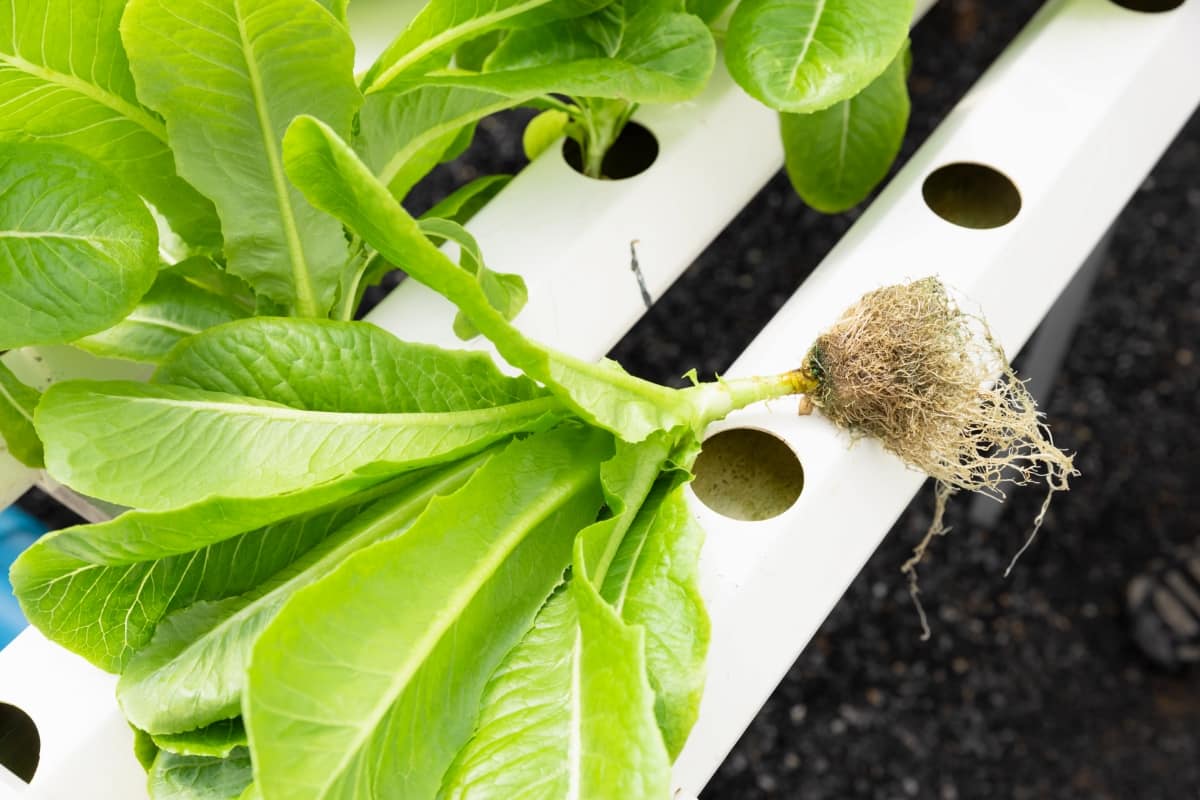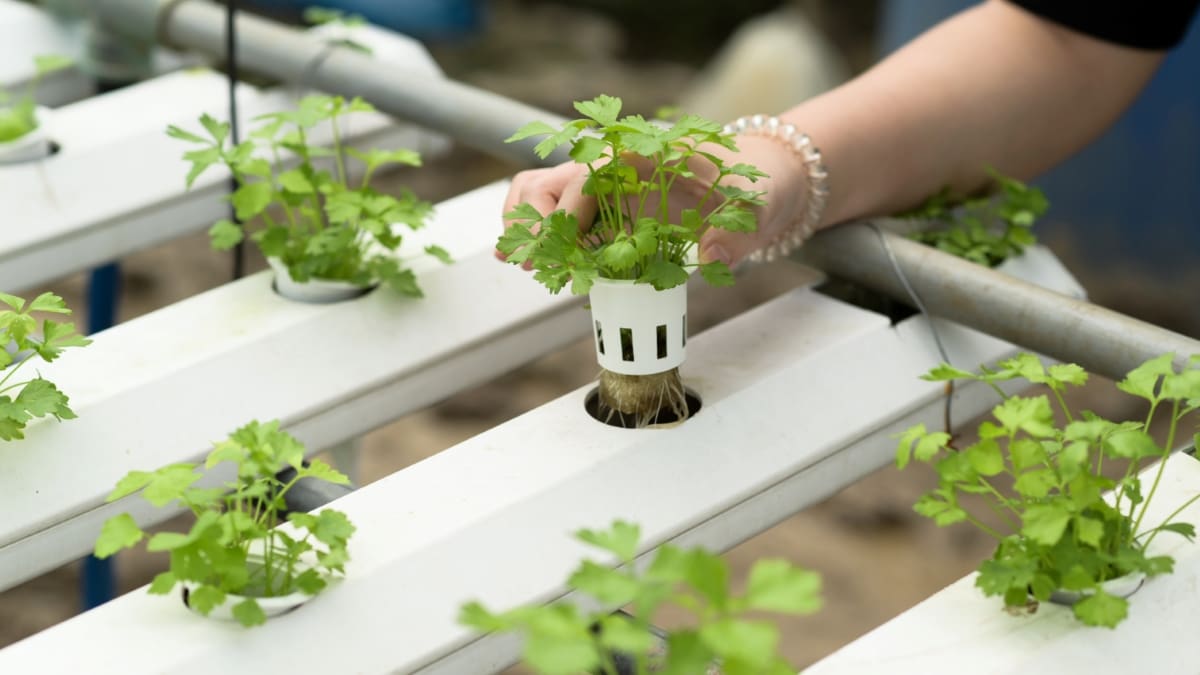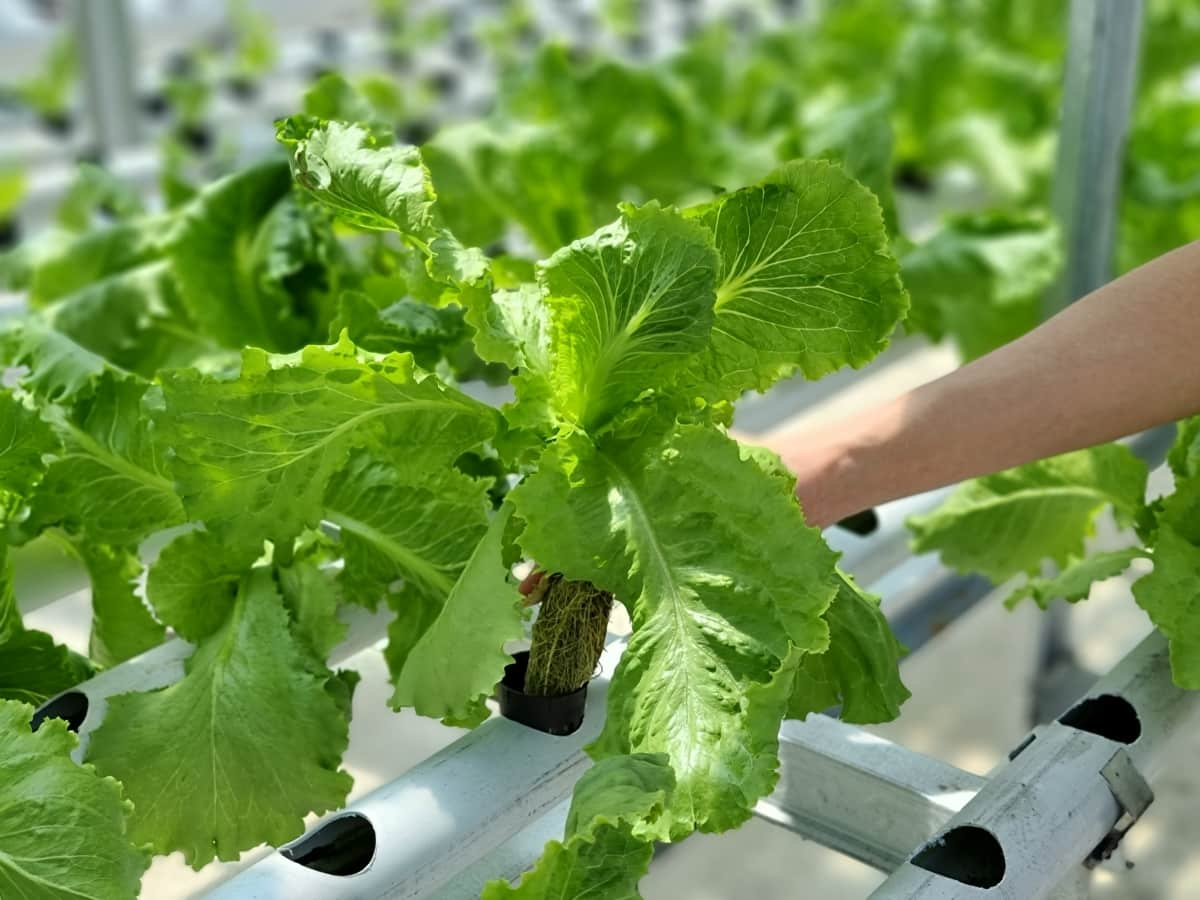Hydroponic gardening has several advantages over soil gardening, so it is becoming more popular. Many people are moving to cities, making hydroponic gardening more and more popular. This gardening method allows gardeners to grow plants in a confined space and increase yields by more than three times.

This method is also extremely efficient at using water, allowing plants to survive in unfavorable climates and soil conditions. When you’re new to hydroponic gardening, you might have several challenges, such as plants dying for no apparent reason. Your hydroponic plants might be dying because of the following reasons
7 Causes of Dying Plants in Hydroponics
Due to Incorrect pH Levels
It has been found that an off-kilter pH level is one of the common causes for plants to die off in a hydroponic system. One of the important things about your plants is that they can exist almost exclusively because of a nutrient solution. The pH level of your plants is extremely important to monitor because they all live in the same nutrient solution.
If your pH is bad for some plants, all your plants could suffer as well. Your plants will suffer nutrient deficiencies or die if the solution is too alkaline or acidic. Make sure you monitor your water’s pH levels at least once a day with a pH meter. As soon as it slides in one direction or another, take immediate action to bring it back into the balance your plants need to thrive.
Due to Poor Lighting
It is also vital to note that poor lighting is a common cause of hydroponic plants dying. The biggest mistake many new indoor growers make is buying cheap and unreliable grow lights when they are just starting out. Hydroponic grow rooms are usually located indoors, so ensure your plants receive sufficient lighting throughout their growing season since most hydroponic grow rooms are indoors.
Your plants will not be able to flourish if they do not receive adequate lighting of the correct type and intensity. There is the possibility that your plant will be burned to death by some lights that may be too bright for them. If you want to ensure that your hydroponic plants receive the right amount of light, then buying the right lights is the best way. Different types of lighting are required for different growing seasons. If you want to buy the right lights, you need to do some research.
Due to Lack of Oxygen
Insufficient air circulation is the most common cause of wilting in hydroponic plants. Roots are responsible for supplying oxygen to plants. Wilting and root death occur when plants receive too much water, resulting in insufficient oxygen. Hydroponic plants suffer from root rot due to a lack of oxygen. A common disease that causes your roots to decay is root rot. Because roots are typically under the nutrient solution, they can transmit to other plants if you don’t react quickly enough.
In case you missed it: 7 Causes of Dying Aloe Vera and How to Fix It?

Until the disease has advanced and the plant is dying, detecting the rot in the roots is difficult. Ensure that the aerial roots are well-ventilated. The aerial roots of the plant are usually located about one or two inches below the base of the plant. You should have enough room in your Kratky hydroponics system if you plan on using the method.
Due to Over-Fertilizing
The growth and flourishing of hydroponic plants require fertilizers that dissolve in water. Fertilizers with a balanced mixture of nutrients will help your plants produce leaves, fruits, and vegetables.
Additionally, it makes the plant more resistant to diseases and pests. A high fertilizer level increases salt levels in the water, and this excessive fertilizing causes hydroponic plants to wilt. Plants that receive too little fertilizer will wilt and die. Ensure to follow the instructions on the packaging to get the right fertilizer for your plants. The EC level of a hydroponic nutrient solution should always be checked after fertilizer has been mixed.
Due to Temperature
Water and air are the primary media for growing in a hydroponic garden or plantation. In hydroponics, nutrient solutions must maintain a certain temperature to ensure healthy plants; too high or too low temperatures can damage leaves, flowers, and fruits.
Temperatures between 20°C and 26°C are ideal for most plants. However, some fruiting plants can tolerate temperatures as high as 30°C. For hydroponic gardens to thrive, there must be constant air or water moisture. Temperatures below 22°C will cause the plants to lose water, and their roots will die. Temperatures above 26°C will cause the plants to lose water, resulting in curled leaves.
Due to Using Hard Water in the Hydroponic System
Using hard water in your system is also possible to kill your hydroponic plants. You won’t have any problems if the water with below 200 ppm you add to your plants. Depending on the water quality, you may encounter many challenges if it exceeds 200 ppm. You will have problems using hard water with many dissolved solids in your nutrient solution. The main elements in hard water are calcium and magnesium salts.
Unfortunately, hydroponic plants will have difficulty absorbing these large molecules. It may cause calcium deficiency in your plants, causing them to wilt or die. Water should be tested before being added to your hydroponic system. In the case of concentrations below 200 PPM, you can directly add it to your system. It should be diluted before adding to your hydroponic system if it is above 200 PPM. You can also filter the water before adding it to your hydroponic system to reduce its dissolved solids content.
Due to Pests
The most common garden pests are soil-borne, but some thrive in hydroponics. Watch out for signs of infestation at all times. Whatever the infection may appear to be, take action. To prevent nibbling insects, use all-natural insecticides. Vinegar, neem oil, and garlic oil are all effective insecticides.
In case you missed it: 7 Causes of Dying Plants in Winter and How to Fix Them?

Using organic soap insecticides is also a great way to keep pests at bay. By introducing beneficial critters, the pests will be preyed upon. Keeping your garden pest-resistant means avoiding dampness, slime, algae, and other problems caused by prolonged exposure to water. A hydroponic garden will be weakened, and pests will be attracted.
Conclusion
Making mistakes in your hydroponic system is normal when you are just starting, as they could cost you a huge crop or even kill your plants. There are many mistakes startup indoor growers make, but it is essential to learn from them and not repeat them. Plants won’t die, or yields will be low if these conditions, which were discussed above, are properly maintained.
- Feed Your Flock for Less: Top 10 Tips to Save on Chicken Feed
- Ultimate Guide to Ossabaw Island Hog: Breeding, Raising, Diet, and Care
- Hatching Answers: The Top 10 Reasons Your Chickens Aren’t Laying Eggs
- Eggs and Economics: Breaking Down the Cost of Raising Backyard Chickens
- Defend Your Greens: Proven Methods to Keep Iguanas Out of Your Garden
- Ultimate Guide to Cinnamon Queen Chicken: A Comprehensive Guide for Beginners
- Ultimate Guide to California Tan Chicken: Breeding, Raising, Diet, Egg-Production and Care
- Ultimate Guide to Marsh Daisy Chicken: Breeding, Raising, Diet, and Care
- 10 Types of Chicken Farming Businesses You Can Start for Profits